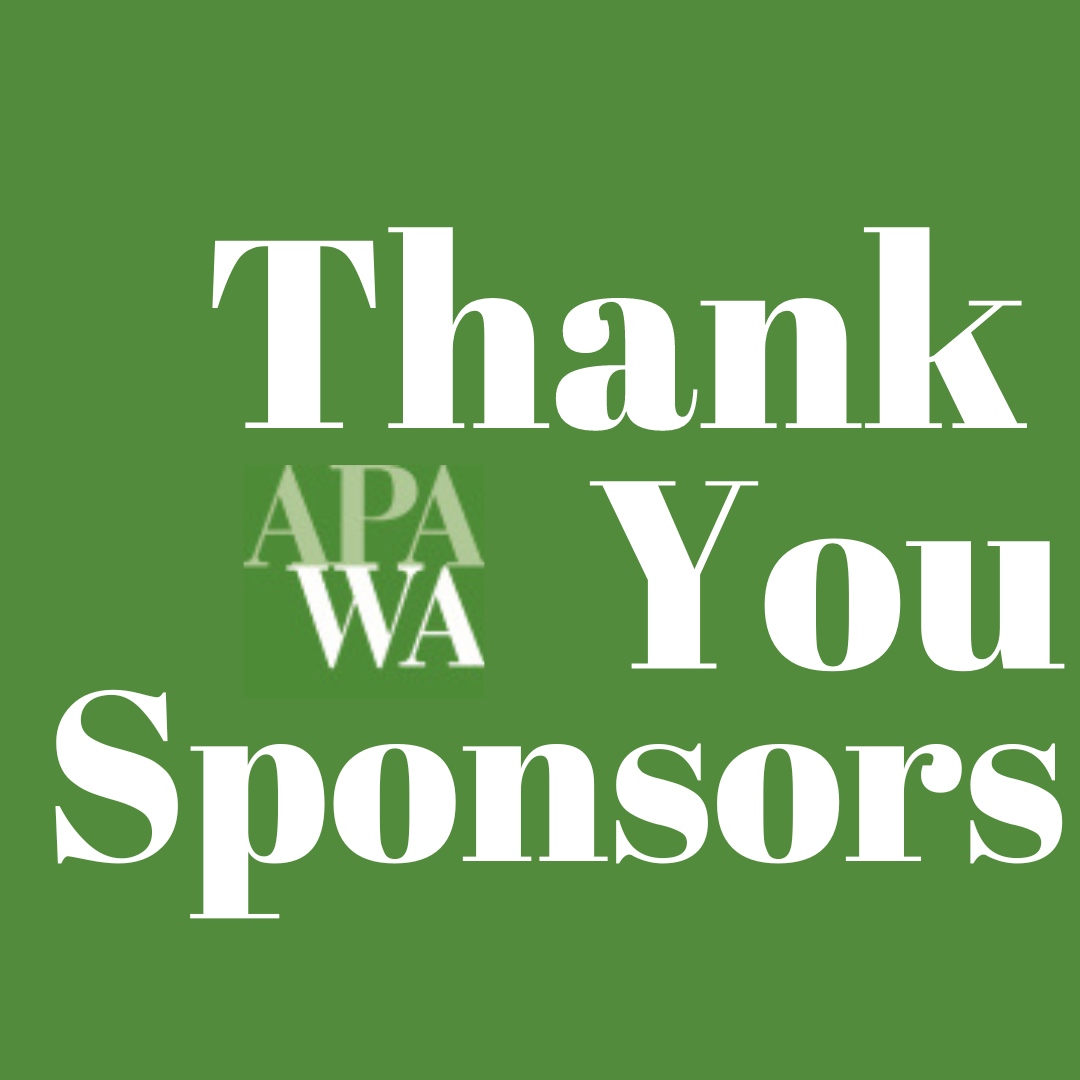- About Us
- Events & Training
- Professional Development
- Sponsorship
- Get Involved
- Resources
APA Weighs in on Transportation Post-COVIDMichael Hintze, AICP and Patrick Lynch, AICP, Chapter Transportation Planning Division Liaisons The Washington State Transportation Commission (WSTC) has been hosting a year-long series on the future of transportation post COVID-19. The WSTC invited members of APA, including Transportation Planning Division (TPD) liaisons Michael Hintze, AICP and Patrick Lynch, AICP, as well as APA Washington President-Elect Yorik Stevens-Wadja, AICP and Northwest Section Past-President Chris Comeau, AICP, to its December meeting to present and provide insights into how COVID-19 has impacted the multimodal transportation system in the short term and the impacts it may have over the long term. Although it’s difficult to predict the future, some of the key long-term considerations that were discussed included the dramatic increase in telework/e-commerce and the potential long-term impacts to peak hour travel demand, land use, parking, efficiently managing the public right-of-way to meet multiple objectives, transit, and social equity. The pandemic has presented many challenges, but it has also forced communities to be creative and reassess how assets like the public right-of-way can be used to meet multiple objectives. Organizations such as Seattle & King County Public Health and NACTO have published guidance for enacting temporary changes to street design to support pandemic response and recovery. Many of these strategies can inform how cities manage their rights-of-way post-pandemic. More cities are taking into account multimodal level of service and the people-moving capacity of different travel modes. Thinking about street space allocation in this way advances equity, mobility, and access by providing more low-cost transportation options to more people. There will be significant transportation challenges facing Washington communities post-pandemic - some that were present prior to the pandemic and some brought on as a result of it. Restoring transit ridership, decreasing single occupancy vehicle trips and greenhouse gas emissions, providing equitable access, and budget shortfalls are some of the most pressing challenges, which can be met with a willingness to try new approaches to managing public rights-of-way using quick build infrastructure and technology, and using data-driven methods to evaluate the effectiveness of these approaches. Proven strategies prescribed by the Growth Management Act that promote mixed-used neighborhoods where people can meet many of their daily needs by walking, biking, or short transit trips will continue to be important for meeting shifting transportation demand and accommodating future growth. Moving forward, tools that will be critical for planners and decision makers for addressing this uncertainty will be scenario planning for evaluating multiple futures and the effectiveness of specific strategies for addressing the challenges these futures may bring. Planning for a resilient transportation system will be critical to be prepared for whatever the future may throw at us. This includes redundancy in our transportation system, flexibility in our actions, and maintaining a strong foundation of institutions and resources to respond to a wide-range of future challenges. APA Washington and the Transportation Planning DivisionAPA’s TPD helps its members swap knowledge and ideas regarding a number of key transportation issues, like moving people and goods efficiently, shaping our urban form, enhancing economic vitality, and improving quality of life. There are more than 130 TPD members within the Washington State APA Chapter. Efforts are being made to forge better connections among Washington’s TPD members so that there is increased knowledge about emerging transportation trends, best practices, and experiences. Michael and Patrick are working closely with the Chapter board to strengthen the connection to TPD resources, increase Chapter involvement, and share of information on critical transportation issues. To this end, the next Virtual Transportation Forum focused on transportation post-COVID will be held on February 25th at 12pm and will occur quarterly thereafter. If you have topic ideas or want to be a presenter, please reach out to Chapter TPD Liaisons Michael Hintze ([email protected]) or Patrick Lynch ([email protected]). We’re also always looking for contributors to the transportation column of the Washington Planner. |

